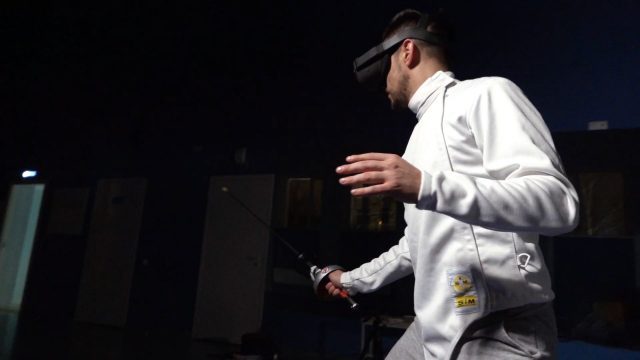Easily joining my list of ‘things I didn’t foresee VR being used for’, Fencer is a virtual reality fencing trainer which uses a real fencing sword attached to an Oculus Quest controller to help would-be fencers learn the underlying strategies and movements.
Russian VR studio Boxglass has developed Fencer, a VR fencing trainer which the company says is built to help new players learn the sport of fencing, tuned toward the rules and customs of the International Fencing Federation, the governing body of Olympic fencing.
Making use of the Oculus Quest headset and one of its controllers attached to a fencing sword, the app walks users through “a gamified set of exercises aimed a reaction and attention,” as well as exercises to train attacking and defensive strategies.
Because the user is using a real fencing sword with the correct weight as they would use in a fencing duel, the studio says that correct “muscle memory and motor skills are formed” with Fencer.
While it would clearly be difficult to learn parrying virtually (because there’s no opposing sword to strike your own), Fencer could certainly train strike accuracy, sword placement, evasion, and a host of other skills important to the sport.

The €2,000 Fencer kit—which includes the headset, sword & controller mount, and app license—is targeted toward fencing gyms rather than individual users. The studio appears to have launched the kit last month.
It’s a shame that a consumer focused BYOS (bring your own sword) version of the app isn’t available; beyond just helping players train, an application like Fencer seems like a smart way to draw new players into the sport by lowering the barrier to entry.






